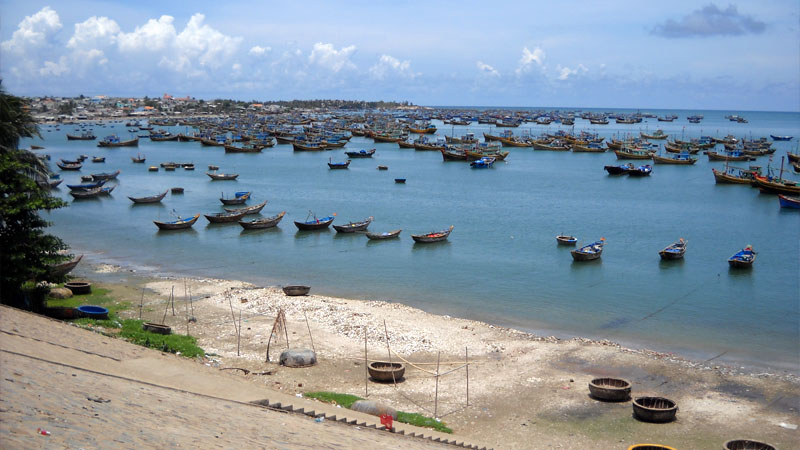Exclusive content

In 2023, the shrimp seed production in Binh Thuan, Vietnam, reached 25.5 billion, fulfilling the planned target. However, the industry faced significant challenges due to the global and domestic market dynamics affecting shrimp prices.
Quality Shrimp Seeds in Binh Thuan
Binh Thuan is renowned for its high-quality shrimp seeds concentrated in Vinh Tan commune, boasting 147 facilities and 12,100 nursery tanks. Despite its advantageous environment, shrimp seed production faced setbacks. The coastal seawater in Vinh Tan became turbid, affecting the reproductive ability of broodstock and shrimp larval development.
The decline in commercial shrimp prices, coupled with increased input costs, made farmers cautious. Pollution in the farming environment prompted some households to shift from shrimp farming to alternatives like snails and seabass. The province grappled with planning issues, putting the local shrimp seed production at risk of being overshadowed by imported counterparts entering the market.
Department of Fisheries Intervention
To address these challenges, the Department of Fisheries took proactive measures. They intensified the management of shrimp broodstock shelf life and implemented inspections to maintain production and nursery facility conditions as per regulations.
Several large shrimp seed production enterprises invested in science and high technology to enhance productivity and quality. Technologies such as RT-PCR for disease diagnosis, water treatment, algae culture, and temperature control were employed to improve shrimp seed production.
Geographical Indications for Binh Thuan Shrimp
The Department of Agriculture and Rural Development is working towards protecting Binh Thuan shrimp products with geographical indications. This move is expected to enhance quality management, expand production areas, and create opportunities for individuals and organizations involved in shrimp production in the province.
Currently, Binh Thuan boasts two commercial whiteleg shrimp farming facilities certified for Global Gap, Bap, and ASC, covering a total area of 121 hectares. The Department of Fisheries issued aquaculture registration certificates to 32 cage aquaculture establishments and 25 establishments focusing on white leg shrimp.